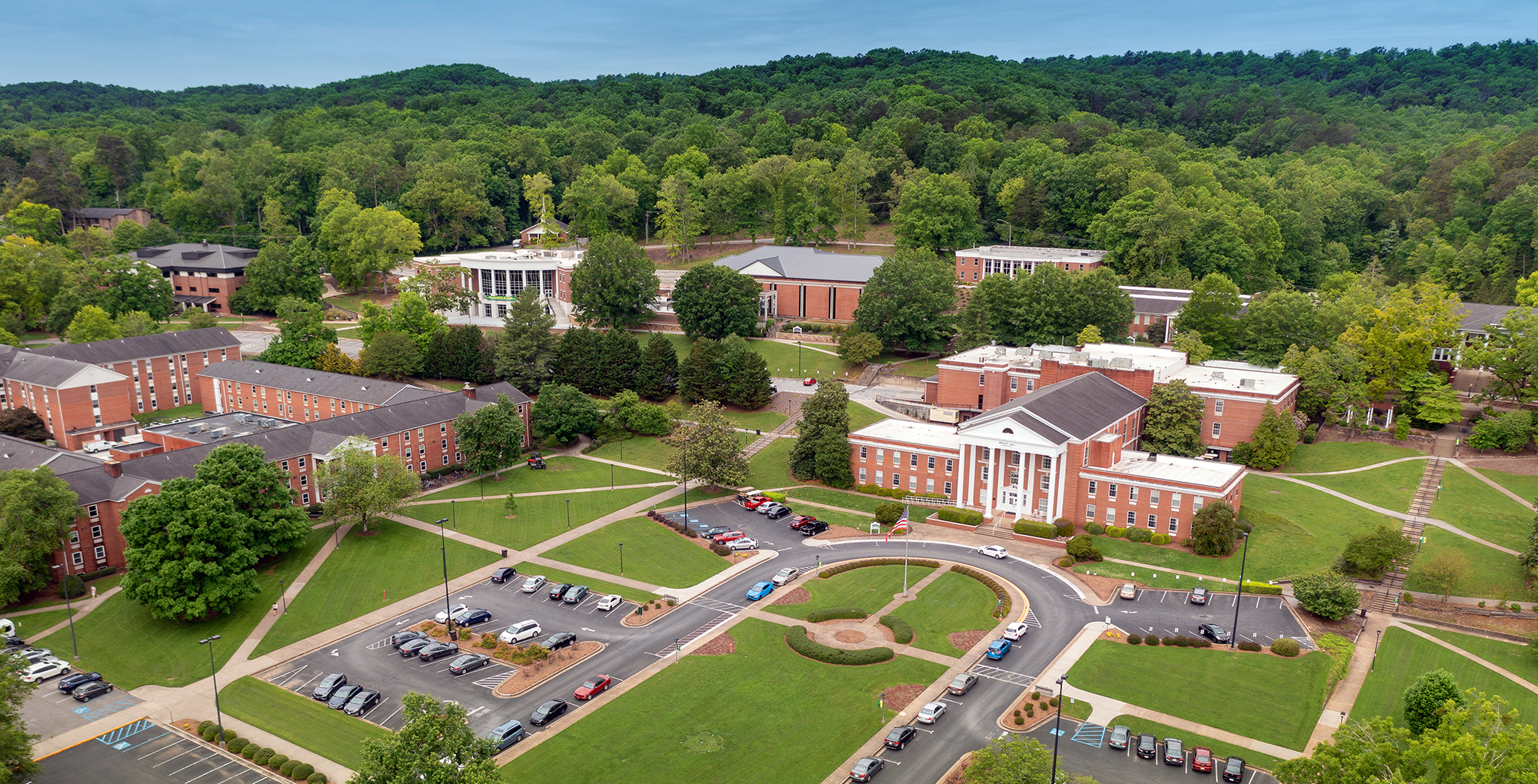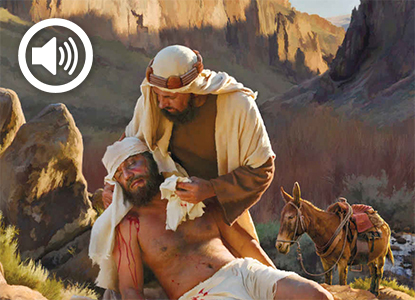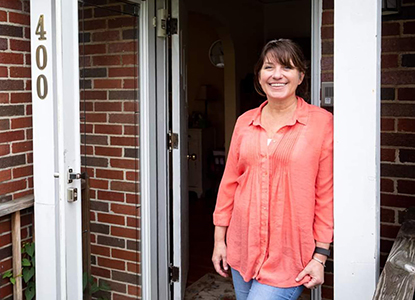
Quicknotes | august 2019
SCHOOL OF P.E., HEALTH, AND WELLNESS OFFERS METABOLIC STUDY
MAKE A DIFFERENCE IN STUDENTS’ LIVES: VOLUNTEER AT SOUTHERN
Join Southern Adventist University’s Lights Volunteers for a Meet-and-Greet on August 15 from 4-5:30 p.m. in the Presidential Banquet Room (Wright Hall). Light refreshments will be served. This come-and-go event is an opportunity to talk with university staff and learn about our volunteer program. Southern is looking for alumni and friends to help in a wide variety of positions across campus: mentoring or tutoring students, assisting with events, acting as patients for our nursing students, driving students to off-campus appointments, light office work, and much more.
For more information, contact Kimberly Bobenhausen at 423.236.2832 or volunteer@southern.edu.
BIETZ CENTER DESIGN SHAPED BY STUDENT INPUT

Many students on campus during the planning stages of construction for the new Bietz Center for Student Life will have already graduated when the doors open in fall 2020. However, their enthusiasm for the project and its powerful impact on future students remains.
One reason for such strong engagement is because they’ve been invited to take an active role in shaping the building’s design and features. For example, students in a three-dimensional graphic design class were asked to imagine what a new Campus Shop bookstore would look like if relocated to the Bietz Center. They broke into teams and over the course of several weeks picked a new name, interior design and color schemes, layout and displays, and even a new logo. The winning concept, called “The Hub,” was produced by Bethany Beckford, ’18; Rachel Brouhard, ’18; and Tia Huff, ’18.
“I plan on coming back to campus for the Bietz Center’s grand opening and am excited to see the changes they made while putting The Hub together,” Huff said. “I hope the space is relatable, comforting, and inspiring for students.”
Another exciting Bietz Center feature influenced by student interest is an interactive Student Missions board. A large touchscreen monitor on the building’s second floor will allow users to locate current student missionaries and interact with them electronically. This $15,000 project has been designated as a class gift funding emphasis for seniors in each of the past three years. Student gifts will account for approximately half of the interactive board’s cost. Seeing this project become a reality provides special incentive for Rhidge Garcia, ’19, to stop by the Bietz Center in future years.
“Watching something that was once only an idea come into fruition always inspires me,” Garcia said. “Plus, this is a great way to build strong bonds between different generations of the Southern family and plant the seeds for future mission work.”
There is also student passion surrounding the Bietz Center’s environmental footprint. While other buildings on campus are already eco-friendly, the Bietz Center is on track as the first at Southern to receive an official certification. This achievement is the result of collaborative work between the university’s Enactus club and green|spaces, a Chattanooga nonprofit.
Alumni and friends of Southern play an important role in the Bietz Center, too. Gifts from donors not only support the building’s construction, but also model a generous spirit that students will learn from and adopt in the years ahead.
-Staff Report
KOREAN STUDENTS VISIT CAMPUS FOR EDUCATION

This summer, Southern hosted a group of students from Sahmyook University, a Seventh-day Adventist institution in South Korea, for four weeks. The 16 students, all studying early childhood education, were sponsored by a South Korean government grant as part of the country’s initiative to increase university competitiveness and global education.
The visitors expanded their perspectives by engaging with Southern’s students and faculty, particularly in the School of Education and Psychology. Their time at Southern included three weeks of classes in English as a Second Language and one week centered around teacher training for Forest Kindergarten—a popular and innovative outdoor teaching method. In addition to the classes, Southern planned cultural activities and field trips for the group.
This is the first year for Southern to host education students from Sahmyook, although the university has conducted a similar program for several years with the nursing students of Saniku Gakuin College and Shukotoku University in Japan. Because Southern and Sahmyook are sister universities, a few Korean faculty members have spent their sabbatical years as visiting professors at Southern, and this connection prompted the group’s visit.
The partnership between Sahmyook and Southern not only benefits students academically but also leads to deeper connections. For the final two weeks of the program, students stayed with host families. One couple who opened their home to two of the students is Mandy Sharpe, DPT, director of clinical education for Southern’s Physical Therapist Assistant Program, and her husband, Kirk.
“They really just settled into our family very well,” Sharpe said. “We talked and joked, and my little kids would wake up and go straight to the visiting students to give them hugs.”
Students received a positive impression, as well.
“American people, I think, are very kind,” said Liz Wang, one of the visiting students from Sahmyook. “They are always smiling at us, even though we are strangers to them.”
Jennifer Carter, director of Southern’s Christian Service program, was event planner for the Sahmyook visit.
“We’re hoping to continue this friendship,” she said. “We want to send groups of our students to visit Sahmyook, and they’re working on coming here again next year.”
PROFESSOR CO-HOSTS COMPANION PODCAST

Over the years, Southern history professor Lisa (Clark) Diller, ’96, PhD, has held many advisory positions with the nonprofit lay organization Adventist Peace Fellowship. Her most recent project with the group moves Diller front and center, helping raise consciousness about the centrality of peacemaking to the beliefs and heritage of Seventh-day Adventists.
An opportunity to shape the future by examining the past was just too good to pass up.
The current adult Sabbath School quarterly, “The Least of These,” is a three-month study of what Scripture says about ministering to the physical needs of neighbors. When the chance came along for Adventist Peace Fellowship (APF) to create a podcast series that could help shepherd a denomination-wide discussion closely aligned to its own core values, leadership moved ahead. It was an especially logical next step for APF member and podcast co-host Nathan Brown, author of this quarter’s lessons.
But just because it made sense didn’t mean it was simple. All 13 hour-long podcasts—plus an introductory session—were recorded in a three-day window on the campus of Andrews University. Despite the concentrated conversations on such a serious topic, APF co-hosts were able to avoid cerebral compassion fatigue.
“It was an exhausting, but amazing experience,” Diller said. “Even though our voices and bodies were tired, the ideas and the Scripture and the possibilities never wore out. I also enjoyed doing the quarterly’s studies in preparation for recording the podcasts and learning all the strong writing that Ellen White did on these subjects.”
Feedback on the podcasts has been positive, both on corporate and personal levels. Churches and other organizations, such as ADRA, are promoting the series, which has helped APF realize a significant increase in website traffic and podcast downloads. Some of the most rewarding feedback, however, has been personal. Long-distance friends routinely reach out to Diller via email and social media expressing gratitude. One recently wrote:
“I listened to the newest podcast and wow … that was church! Y’all spoke a real word. I’m going to sit with Isaiah 58 this week and re-evaluate my attentiveness to God. Thank you for this reminder and this ministry.”
As struggles for justice are broadcast with increasing frequency on a national and global scale, the timing for this quarter’s lesson and companion podcasts feels providential to APF members. Diller is optimistic that 13 weeks of study on a topic as critical as “The Least of These” can impact hearts and minds in a lasting way.
“I think it could be time to read our Bibles with our newspapers in hand, as the old saying goes; to think about these great promises and commands within the context of things happening in our towns and communities,” Diller said. “Loving Mercy and doing justice are not competitors with—or disconnected from—proclaiming the gospel.”
-Staff Report
NONPROFIT HOSPICE RECOGNIZED FOR ETHICS

Founded in 2014, Welcome Home of Chattanooga provides shelter and end-of-life care for men and women—prioritizing veterans—who are homeless and have been diagnosed with a terminal illness. The organization is led by executive director and founding partner Sherry Campbell (pictured below), who graduated from Southern in 2011 with a master’s degree in social work.
In 2019, Welcome Home of Chattanooga (WHC) was recognized as a finalist for the Better Business Bureau’s regional Torch Award for Marketplace Ethics, an honor given to organizations who demonstrate “willingness and efforts … to ensure that the marketplace remains fair and honorable for all consumers.” Since opening its door in 2015, WHC has served 47 individuals using a sliding scale for room and board.
Campbell recently shared some of her Southern story and how the university continues to play a role in the success of WHC’s mission.
Why did you choose to attend Southern and how did your coursework here contribute to the creation of WHC? It was an exciting opportunity to go back to school in my 40s and further my education. I had a great experience at Southern, where professors helped instill newfound confidence in my practice as a social worker. Because of that, I was able to realize a community need and take a leap of faith to address that need.
What gap did you see in local hospice services that led to the creation of WHC? I was one of several hospice social workers who kept meeting people who had nowhere to go, or if they did, they were living alone in desperate situations. There are very few options in the Chattanooga area for end-of-life care. We also saw an ongoing gap in education, so at WHC we teach others about the holy ground of caring for those who are dying and have trained more than 100 volunteers, 40 of whom come on a regular basis to help here.
What have been some of your biggest challenges since opening WHC? We are able to serve five individuals at a time but the need is much greater. We keep a waiting list and would like to open a second location. We also care for challenging personalities at times, individuals who are angry or defensive because of where they have been.
How does Southern continue to impact the WHC story? Southern’s School of Social Work, School of Nursing, and School of Journalism and Communication have all been part of WHC by regularly sending students to share their skills with us. This is such an honor! We also had a team of students from the School of Visual Art and Design complete a beautiful mural in one of our rooms this year during January’s MLK Community Service Day.
How can other Southern alumni support the work of WHC? Prayer is very important. We’re a young nonprofit and would not be here without God’s presence. Community awareness is another way to assist in our mission, helping spread the word about what we’re doing to ensure people know about us. We also have many volunteer opportunities for individuals and groups.
Upcoming Events
Unless otherwise noted, all events are free and open to the public.
Lights Volunteers Meet-and-Greet
Christine Williamson Convocation
Star Watch
Kristin Du Mez Convocation
Homecoming Weekend

Support The Southern Fund through AmazonSmile—it's the same as Amazon, but for all eligible purchases, Amazon will make a donation to Southern Adventist University!